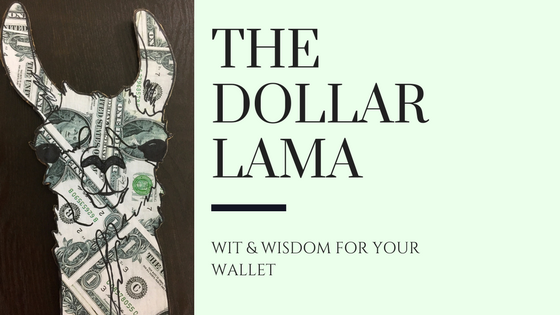Anyone who has been following my content knows I come from a poor family. I am the youngest of four kids and my parents divorced when I was eight. Neither of my parents were great with money so, after the divorce things were even tighter than they were before. Half of nothing is even more nothing, right?
When I say I know exactly what it means to live hand to mouth, I really mean it. I also know what it takes to get out of that cycle. I managed to do it and while it was not easy, I also know it is not impossible. It starts with education, learning financial literacy and self-discipline. It’s really simple, basic stuff that we should be learning in school (in fact, I don’t know why it isn’t taught in school from kindergarten to high school).
For More In Depth Information If you want to more personal finance tips and strategies, including 5 Student Loan Debt Payment Tips, enter your information and click on "Learn More!" Check your email for FREE gift details!![]()
The recent government shutdown is nothing if not a personal finance learning opportunity on a large scale. The biggest takeaway, for me anyway, is a lesson I’ve learned many, many times in my life. Financial stability is empowerment. Ask yourself what would happen if you were let go from your job right now, without warning? Or worse, made to work without getting paid? What if you couldn’t get a new job because you were close to retirement or needed a particular benefit your current job provided? If you were taught about personal finance from a young age, do you think you would be more or less likely to survive the job loss unscathed? I think you know where I’m going here!
So, how did we get here? How is it that the middle class, which miraculously appeared after WWII, is now starting to disappear? I have a three-pronged theory about it:
- Stagnant wage growth/income insecurity;
- A shift away from overall wealth accumulation:
- Too much student loan debt so not enough time to buy and pay off a home or save for retirement;
- Pensions vs. 401(k)s;
- Lack of financial literacy.
Now, I did a fun video about this topic last month, here’s the link for it, click here. In the interest of time, I’ll skip that part of the paycheck to paycheck cycle. However, I strongly encourage you to go check it out if you have a few minutes. Okay, forty-one minutes. It’s long, but it’s worth it. Trust me, I wouldn’t lie to you, I’m a lawyer.
The truth is, If we don’t pay attention to our past actions, we’re doomed to repeat them. That is the most important reason I’m talking about this topic at all. For this blog, however, I want to focus on how to break this cycle. Let’s talk about that fun subject next!
How to Stop Living Paycheck to Paycheck
First things first, you need to know that it starts with you! Us 99%ers have to wake up to the fact that the financial resources we’ve relied on in the past are not set in stone. We have to realize it’s our responsibility to prepare for our financial future. That has to be the fundamental concept in your money management philosophy.
This also means you have to be fearless with your finances. This doesn’t mean go off and blow your hard earned savings on a weekend in Vegas or by investing in a start-up sea monkey farm. No, what I mean is, you can’t worry about making financial mistakes in terms of retirement investing and don’t make the mistake of thinking you aren’t capable of learning how to successfully manage your money.
Behavioral finance studies show people don’t invest in IRAs or their employer sponsored 401(k) plans because they don’t understand how they work. Don’t let that stop you from picking up the phone and calling a financial planner or your 401(k) plan manager, if you’re lucky enough to have one. Call one or the other and ask them to explain things to you until you understand it. That’s what they are paid to do.
Also, don’t forget that it’s okay to fail. You’d be surprised about the financial mistakes you can bounce back from, whether it’s credit mistakes or filing for bankruptcy. Just because you made a mistake at some point, doesn’t mean you shouldn’t pick yourself up and keep trying. You only truly fail when you stop trying.
Second, learn what it means to have financial empowerment. Being financially empowered may or may not mean actual financial independence. It really occurs when you have economic stability and security. Having your personal finances under control is what matters, not whether you’ve achieved generational wealth, (even though we are all shooting for that). Most importantly, being financially empowered allows you to provide for your future and your family. I would argue that this is the most important result of financial empowerment, along with teaching your children to be economically stable as well.
Financial empowerment changes the way you make decisions. This is true because economic security brings along with it a kind of confidence that allows you to make decisions from a position of strength and reflection. When you are broke, you have to make decisions from a crisis management standpoint and that is usually expensive. Being able to step back and shop around always saves you time and money in the long run. To get to that point, you have to realize that when you make spending decisions, you are either moving toward being financially responsible or away from it. That is a great starting point on the road to financial empowerment.
Another benefit of being financially empowered is having your voice heard on so many different levels. Think about it like this, you support your community by choosing to spend locally and boosting your local economy. Also, when you have enough economic security you can be heard on issues that matter to you without fear of financial loss. Sometimes a job can be worth walking away from if you’re not worried about where your next paycheck is coming from.
Third, we need to start realizing there are two aspects of money management and you must have balance between both. There are non-conceptual aspects (the practical things you need to do), and conceptual aspects (the cognitive things you need to do). Here’s how they break down:
- Non-Conceptual (Practical) –
- No brainer action steps you take on a regular basis like budgeting, saving for retirement, living within your means.
- Understanding and applying the rule of compound interest over time.
- These things are best served by automation and/or self-discipline.
- They are of (slightly) secondary importance than Conceptual/Cognitive aspects (GASP!)…
- Conceptual (Cognitive) –
- Slightly more important than Non-Conceptual/Practical aspects.
- These things help you adjust your money mindset and/or mentality.
- Behaviors/patterns/choices – require constant, but minimal, effort and refocusing (building your muscle memory).
- Actual thought driven behavior –
- Taking responsibility for your finances;
- Mindfulness/awareness/presence;
- Failing forward.
- Gratitude – this where building lasting wealth begins!
Again, in my opinion, you will not be successful at taking the practical steps to actually start saving and building wealth if you can’t get the cognitive aspects under control.
If you are interested in learning more about how to balance the practical and cognitive aspects of money management, check out my video from 1/24/19 by clicking here.
One last thing…
DON’T FORGET THAT SMALL ACTIONS MATTER!
No matter what, if you feel overwhelmed about these ideas and you feel like there’s no way you can start doing any of the techniques I’ve talked about in this blog, just remember this one phrase. Small actions matter! Just start with that, with one small, right action or simple thing every day. Here, let me help you. Start with gratitude. Be thankful for three new things every day. Nothing is more simple than a gratitude practice. Start with that an you will already be ahead of the game!
See you later, alligator!
Joy Alford-Brand
The Dollar Lama
P.S. Make sure you check out my online courses, books and resources, too! Investing in your money management education is an investment in yourself. That’s the best investment you’ll ever make, I guarantee it! Don’t forget my weekly Facebook live videos on Facebook.com/newcashview, Instagram @joyalfordbrand and on my YouTube channel NCVTV. You can catch me twice, on Mondays between 3:00 p.m. and 4:00 p.m. for my Monday Money Management Minute and Thursday evenings between 7:00 and 9:00 (Eastern Standard time), for my weekly NCVTV episode. They are packed full of useful and entertaining money management information! If you’ve missed any NCVTV episodes, you can see the latest on newcashview.com or you can check out my YouTube channel and get caught up! You can get there by clicking here. Remember, like and share the NCVTV videos on Facebook and all your social media platforms, so others can benefit from them, too! #financialempowerment

GET INSTANT ACCESS
Download your FREE gift!
To learn 5 Student Loan Debt Payment Tips, enter your info and click on download.
Check your email for FREE gift download!

